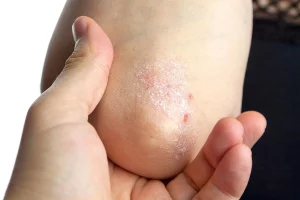SUICIDE IS THE 10TH LEADING CAUSE OF DEATH IN THE UNITED STATES.
It is generally considered a bigger problem with men, since men are 3.5 times more likely to die of suicide than women are. That, in turn, means that the majority of the research that has been done on suicide prevention has been centered on men. However, those numbers are complicated by the fact that women are actually 3 times more likely than men to attempt suicide in the first place. Suicide is clearly a problem that doesn’t discriminate between the genders — even if science does.
Luckily, researchers are now looking closer at women, in hopes of figuring out how to better spot warning signs and thereby increase the chances of possible prevention.
One study published in Molecular Psychiatry delved deep into the biological markers that could potentially indicate suicide risk. They studied 51 female participants who had already been diagnosed with psychiatric conditions. Researchers gave the participants questionnaires to answer about their moods, and carried out genetic tests on them as well.
Of those 51 women, 12 of them sometimes visited suicidal thoughts, and when they did, certain genes were activated in different patterns than when they were not feeling suicidal.
A second portion of the study involved researchers examining the blood of women who had committed suicide. They were able to confirm the presence of blood biomarkers that were similar to ones that have already been found and identified as risk signifiers in men’s blood, although they discovered that the were differences in certain regards. In women, for example, the biomarkers that had to do with circadian rhythms differed from the ones found in men.
Lastly, the researchers further studied the links between suicidal ideation and circadian rhythm biomarkers, as well as the biomarkers linked to the body’s response to lithium. They questioned women with psychiatric conditions about their moods — but not about suicide — and found that using those two markers allowed them to predict who would have suicidal thoughts with 82 percent accuracy. They could also predict who would be hospitalized for attempting suicide with an accuracy of 78 percent. It’s obvious that these researchers are onto something here.
One limit that this study had, of course, is that the women being tested and questioned had already been diagnosed with a psychiatric disorder. More research would need to be done on these biological markers in women who do not suffer from them. But including women in the studies at all is a huge and long-overdue leap in the right direction.
If you or anyone you know is dealing with thoughts of suicide, reach out to National Suicide Prevention Hotline — available 24 hours a day — for help. Do not suffer in silence.

















